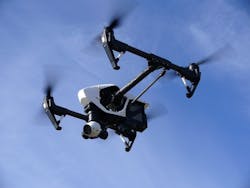An article in Commercial UAV News reports that when it comes to quantifying the value of drone technology, the calculation is usually related to how drones are making a given process faster, cheaper, or safer. Using drones to avoid disputes about the work that is or isn’t being done in the field has also translated to immediate cost-savings and lowered risk.
One example the article cited was the use of drones during pipeline inspections. If an operator can get ahead of an issue like soil erosion, for example, they can avoid a hillside blowout that could be costly. The article says drones have allowed energy companies to "more effectively prioritize their resources."
“If the operator and contractor both have a baseline of data to refer to, it’s usually pretty clear where the burden of liability or warranty falls at any point throughout the project lifecycle,” Robert Blank from SolSpec, a drone platform and analytics company, told UAV News.
Another challenge Blank has noticed within the industry is also associated with project scale. According to him, there are a substantial amount of computing resources required to "chew through" data quickly when analyzing something like a pipeline project.
"It's something we've dealt with first-hand, which prompted us to build software to service enterprise clients on a massive scale, which we soon realized many others found valuable for other purposes," Blank told UAV News.
According to the article, drone technology has also proven to be critical for oil and gas companies when it comes to litigation. Data from a drone provides stakeholders with a timeline and historical project snapshots, where companies have been able to avoid finger pointing that is costly in both time and money.
Source: UAV News





